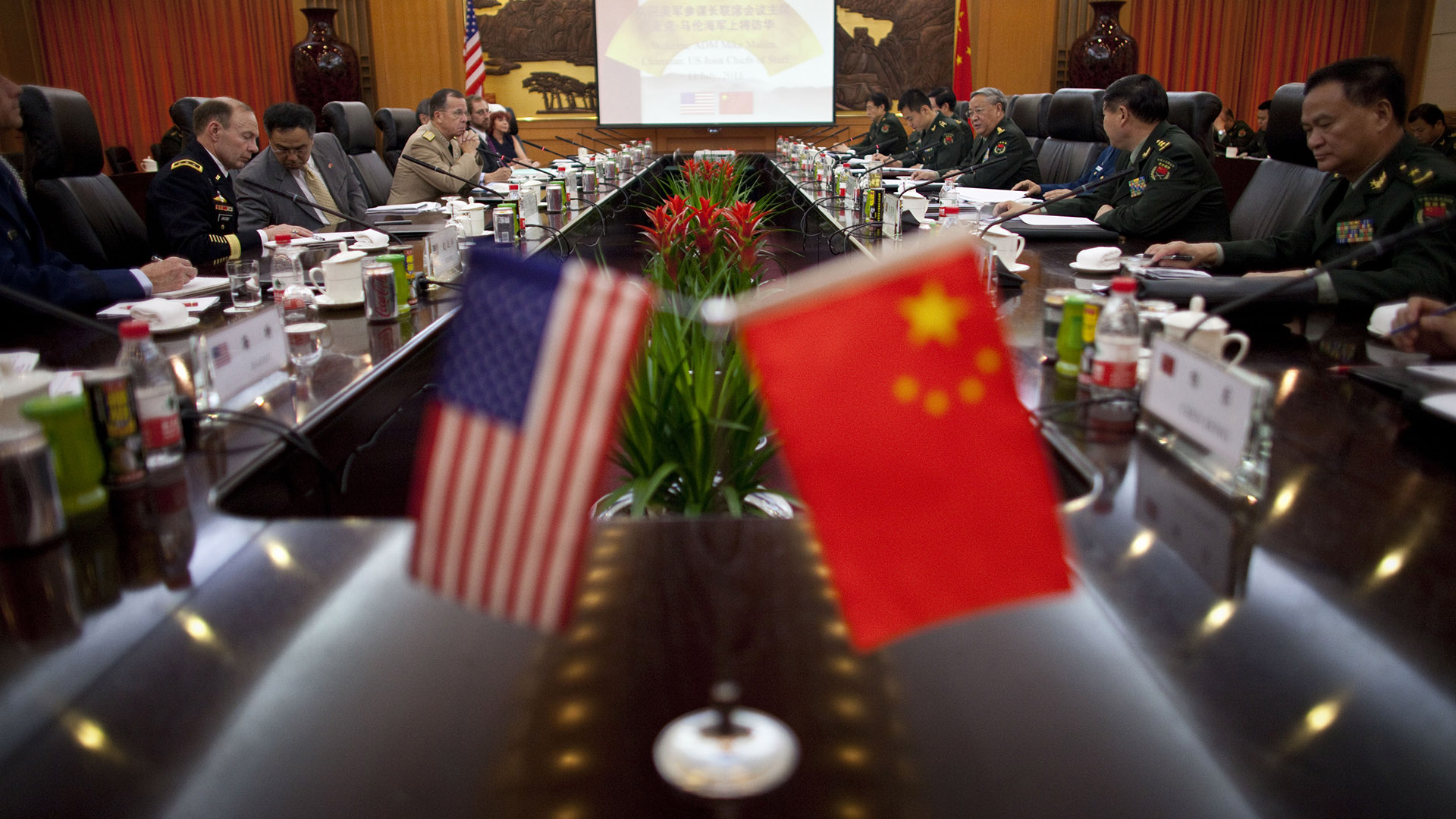

Direct ties between senior U.S. and Chinese military leaders have been restored following a rough patch last year when a Chinese spy balloon overflew the United States, President Joe Biden told reporters on Thursday.
In November, both Biden and Chinese President Xi Jinping agreed to resume military-to-military communication, which Beijing had suspended after House Speaker Nancy Pelosi’s August 2022 visit to Taiwan. Tensions between both countries became higher after a U.S. Air Force F-22 shot down a Chinese spy balloon off the coast of South Carolina in February 2023, causing a planned trip by Secretary of State Anthony Blinken to China to be postponed.
“We’ve reestablished direct contact with China,” Biden said during Thursday’s news conference. “We set up a new mechanism. There’s a direct line between Xi and me, and our military has direct access to one another, and they contact one another when we have problems.”
Biden did not elaborate how top U.S. and Chinese leaders are communicating or at what level this “direct access” is taking place.
Since Biden and Xi announced the resumption of communication between top U.S. and Chinese military leaders, both countries have held Defense Policy Coordination Talks in January on defense relations and a Military Maritime Consultative Agreement meeting in April on how both countries can work together on air and maritime safety, said Army Maj. Pete Nguyen, a Pentagon spokesman.
Also in April, Defense Secretary Lloyd Austin held a teleconference call with Admiral Dong Jun, Minister of National Defense of the People’s Republic of China. Austin then met Dong in May on the sidelines of the Shangri-La defense forum in Singapore, marking the first time the two had met in person since Pelosi’s visit to Taiwan in 2022.
Subscribe to Task & Purpose today. Get the latest military news and culture in your inbox daily.
Chairman of the Joint Chiefs of Staff Air Force Gen. Charles “CQ” Brown Jr. also spoke with the People’s Liberation Army of China Chief of the Joint Staff Department Gen. Liu Zhenli by teleconference in December.
“The Department will continue to engage in active discussions with PRC [People’s Republic of China] counterparts about future engagements between defense and military officials at multiple levels – including telephone conversations between theater commanders in the coming months, as well as a convening of a crisis-communications working group by the end of the year,” Nguyen told Task & Purpose.
Although China has restored two channels for military-to-military communications that had been suspended following Pelosi’s visit to Taiwan, there still has not been a meeting between U.S. and Chinese military theater commanders, which the American government hopes could become a new communication link, said Bonnie Glaser managing director of the German Marshall Fund’s Indo-Pacific Program.
“Officials have said that a meeting will likely take place, but not until next year,” Glaser told Task & Purpose on Friday. “It is my understanding that there has been more form than substance, but Biden administration officials have signaled that progress may be forthcoming.”
Defense Department officials have repeatedly described China as the “top pacing challenge” facing the United States. The Marine Corps is in the middle of a massive force structure overhaul to make it leaner to fight a war against China in the Indo-Pacific, and the U.S. military is sinking three vessels this summer as it ramps up its capabilities to respond to a possible Chinese invasion of Taiwan.
U.S. military officials have speculated that China could attempt to invade Taiwan by 2027, if not sooner. The Taiwan Relations Act of 1979 is intentionally vague about whether the United States would intervene militarily if China launched such an invasion, but Biden has repeatedly said that U.S. troops would defend Taiwan.
Still, Austin has emphasized that a war between the United States and China is “neither imminent, in my view, or unavoidable.”
Restoring communications between U.S. and Chinese senior military leaders so they can discuss crises and avoid unintended escalation is an important step, Deputy Secretary of State Kurt M. Campbell said in June.
“Ae think that they will bear fruit in the next little while,” Campbell said. “And we believe that China is also invested in trying to head off potential areas of misunderstanding.”
The latest on Task & Purpose
- This 41-year-old soldier graduated Army basic training after a 20 year break
- The woman who predicted the Tết Offensive, but was ignored, passes away at 97
- National Guard soldiers training with ‘pocket-sized’ drones
- Army vet receives Bronze Star with valor 20 years later for bravery in Iraq ambush
- 2 Civil War soldiers receive Medal of Honor for ‘Great Locomotive Chase’